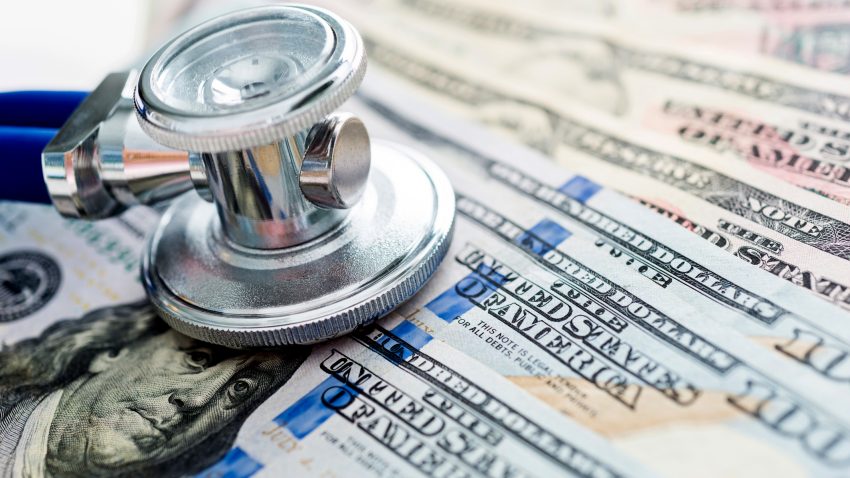

8 Ways to Reduce Your Medical Bill
These days, we’re all aware of skyrocketing medical costs. Health plans are constantly changing and so are the providers. Outrageous medical bills not only make it increasingly more difficult to obtain routine care, but also cause some to put off visits to the doctor or the ER. When it comes to taking steps to lowering your medical bill, it is important to not only find ways to decrease your outlay, but at the same time to maintain adequate access to health care services. While doing that can be challenging, it is possible.
Lowering your medical bill is not just about negotiating with your doctor or your health insurance provider after the bill has arrived. It is about educating yourself on your options. It means being an active participant in your health care decisions.
1) Outpatient versus inpatient
Outpatient procedures are typically less expensive than inpatient or hospital procedures. However, when discussing such an option, be aware that your doctor may make one choice over another based on your age, your general health status, and any contributing factors such as a medical condition that would benefit from the procedure being performed in a hospital environment. Facility fees or charges added to bills can depend on where the procedure is performed and are not limited to hospitals. Hospital-owned urgent care centers, medical practices, or outpatient centers that have been purchased by hospital-based healthcare systems may charge certain facility fees. Educate yourself beforehand to know what they are.
2) Opt for substituting urgent care centers with an emergency room
With the exception of life-threatening emergencies (such as head trauma, unconsciousness, suspected heart attack or stroke, uncontrolled bleeding, serious abdominal pain), a visit to an urgent care center will provide after-hours care on a walk-in basis. A visit to urgent care averages $50-$125, which is much cheaper than an emergency room visit, which hovers around $1,000, depending on geographic location. Urgent care centers require payment at the time of service and don’t offer a payment plan. Hospitals often allow for payment plan negotiations for emergency room services.
Know what your local urgent care center or retail clinic offers in the way of services before you need them. Be aware of their general charges, the types of services they are equipped to handle, and how they are staffed. Most urgent care centers have at least one physician on staff or a physician’s assistant (PA), nurse practitioners, and one or more licensed nurses.
3) Consider retail clinics
While scheduling a visit to your primary care physician is always recommended at the onset of an unexplained illness, retail clinics provide options for routine medical care such as sinus infections, allergies, colds, flu, and minor “non-emergency” services like school or work health screenings, vaccinations, and collecting samples for blood work. Like Urgent Care Brooklyn, retail clinics are generally staffed by physician’s assistants, nurse practitioners, and licensed nurses. Others may have a team of doctors or there may be one doctor on staff.
4) Make sure you know what your health plan covers and what it doesn’t
When it comes to lowering medical bills, one of the most important things you can do to tackle costs is to understand your coverage benefits from front to back. Carefully read the policy regarding what’s covered and what’s not under your health care plan. If you are confused, contact your provider and get clarification. Knowing ahead of time can reduce unpleasant surprises and aid your efforts in negotiating payments or coming up with alternative treatment plans that may not be as expensive.
5) Negotiate
While private practice physicians are often less willing to “negotiate” medical costs than hospitals, the finance department at your local hospital may be more open to negotiation than they have been in the past. Even a 10% to 20% reduction of overall costs can save a bundle. Don’t be afraid to ask for more. While you’re at it, ask about an interest-free payment plan for large medical bills. Negotiating a payment plan can also leave the option open later down the line to renegotiate.
6) Take advantage of prescription saving offers
Prescription drug costs are rising just as fast as policy premiums, out-of-pocket expenses, and co-pays. A number of retail drugstores and hospital pharmacies offer patient discounts and prescription savings plans even for individuals who are not covered by health insurance. Prescription savings plans from many retail pharmacies cost $20-$25 a year but can save hundreds if not thousands of dollars on prescription drug costs and refills annually.
7) Opt for generic over brand-name drugs
When it comes to lowering your medical bill, ask your doctor whether medications being prescribed are available in generic form. There is no difference between brand-name drugs and their generic forms other than price. Generic drugs are developed when a brand name drugs comes off its patent. Generic drugs must meet the same FDA standards in regard to quality, strength, potency, and dosage form and identity as the brand-name drug. Inactive ingredients may be slightly different. Cost for a generic drug can be as much as 85% lower than the equivalent brand-name drug.
8) Offer to pay in cash
Many doctors today are accepting cash payments at the time medical services are rendered. Some physicians offer even more discounts to those who pay with cash. This is a good option for someone who doesn’t regularly need visits with their physician. Even large medical bills can often be negotiated, saving thousands of dollars, with an offer to pay a certain percentage of the bill in cash.
The bottom line is: you can receive quality care while at the same time saving money. It comes down to knowing and understanding your insurance policy. It means taking the time to shop around for discounts on prescription medications. If you’re not facing a life-threatening situation, a retail store or an urgent care center will more than likely be able to meet your needs without the often staggering cost of an emergency room visit. Research your community options when it comes to health care.




3 thoughts on “8 Ways to Reduce Your Medical Bill”
Comments are closed.